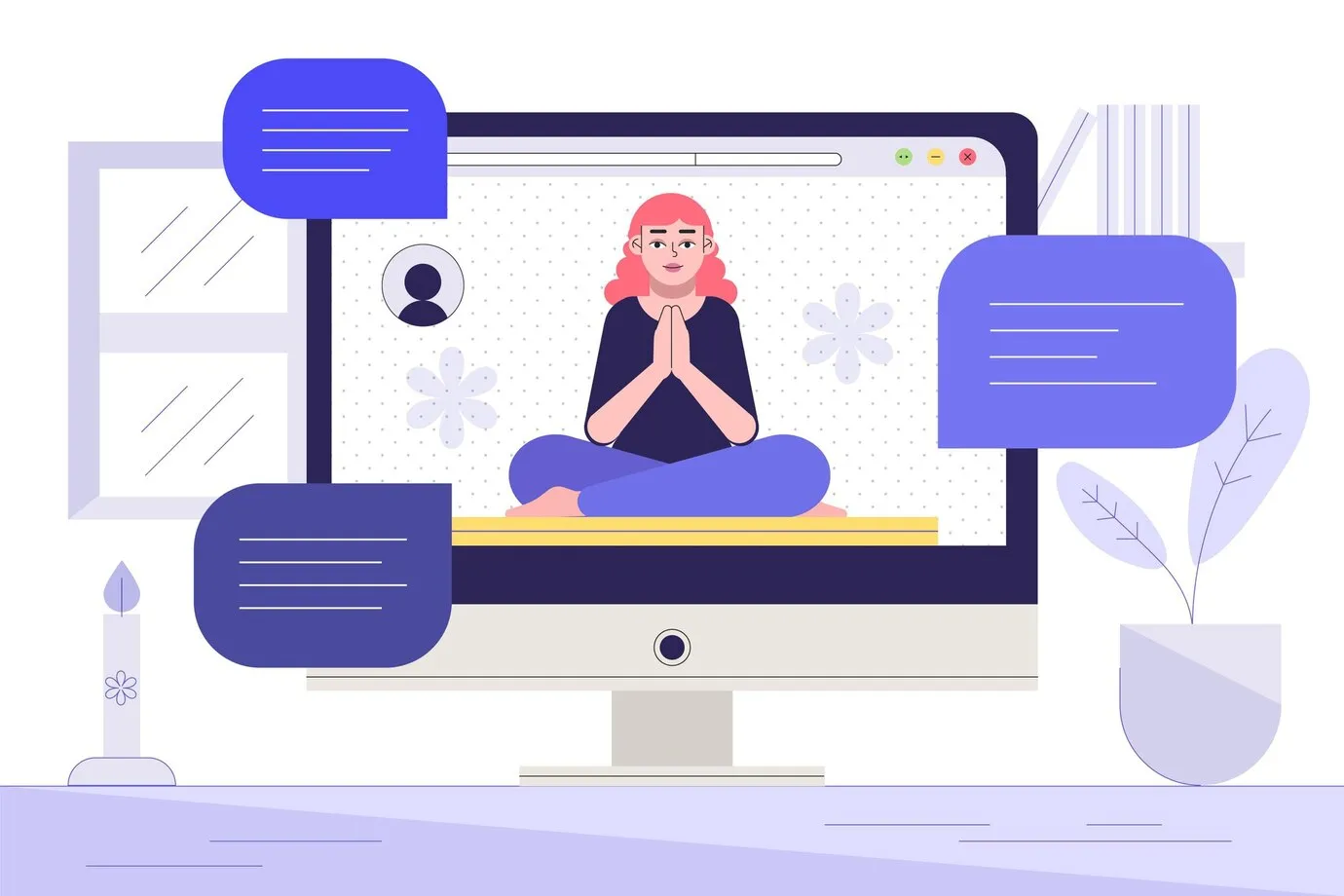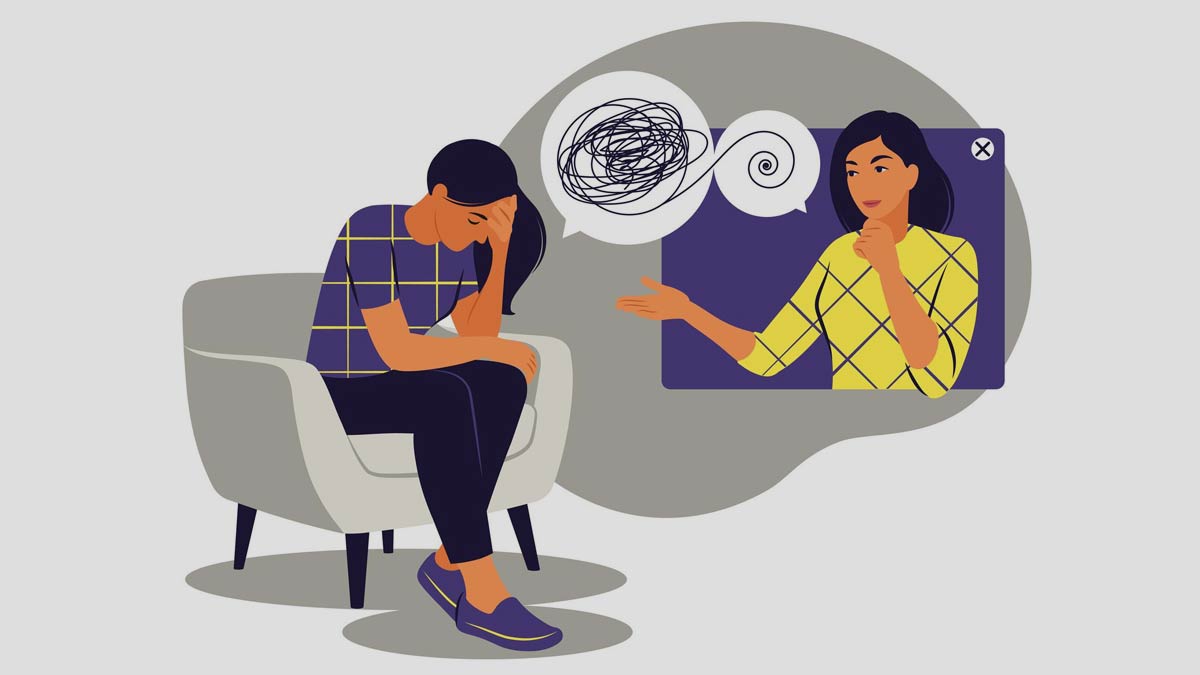
In a rapidly digitalising world, the terrain of mental health care is changing quickly. Alongside classic therapy and self-care rituals, a new front has opened up: Artificial Intelligence (AI). AI-powered chatbots are now providing companionship, advice, and even therapeutic methods. But can these online interactions really deliver support for our mental health? We talked to Dr Shrey Srivastav, Senior Consultant and General Physician at Sharda Hospital, Noida, to explore the possibilities and constraints of AI in mental health care. Here is everything he shared with us and what you need to know!
Table of Content:-
CHECK YOUR
MENTAL HEALTH

Emergence of the AI Companion
Mental wellness chatbots powered by AI are becoming more advanced. They can have a conversation, provide mindfulness practices, monitor mood, and educate about mental health disorders. They are easy to use for many, affordable, and conveniently accessible 24/7, providing instant support that can sometimes be lacking in traditional therapy.
"The beauty of AI in mental health is its anonymity and accessibility," says Dr Srivastav. "For people who are nervous or stigmatised about seeing traditional therapy, or who need immediate, low-level assistance, AI chatbots can be an effective starting point."

Potential Benefits of AI Therapy
Several potential benefits of using AI for mental well-being are noted by Dr Srivastav:
1. Accessibility and Convenience
AI chatbots can be accessed anywhere, anytime, eliminating geographical and timing constraints. This may be especially helpful for those who live far away or have busy lifestyles.
2. Anonymity and Reduced Stigma
For some, it is simpler to open up to an understanding but non-judgmental AI rather than a human therapist, which could reduce the threshold of approaching help.
3. Cost-Effectiveness
Compared to conventional therapy sessions, AI chatbots are usually much more affordable or are even free at times, due to which mental health services more easily accessible.
4. Unwavering Support and Monitoring
AI can assist with regular checks, monitor the patterns of emotions, and send customised exercises and information based on user feedback. This can contribute to individuals' better understanding of themselves and to taking care of their well-being in advance.
5. Early Intervention and Psychoeducation
Chatbots can share simple information about mental illnesses, coping strategies, and when one should get help from a professional, possibly paving the way for early intervention.

Limitations and Concerns of AI Therapy
Although the prospects of AI for mental health look bright, Dr Srivastav asserts the key limitations and concerns which must be treated with careful caution:
1. Deficit in Empathy and Emotional Understanding
AI, as great as it has come, is without real empathy and the capacity to fully grasp human emotions and experience. Mental health care largely depends on the empathic therapeutic relationship and trust established.
2. Inability to Manage Complicated Problems
AI chatbots are typically designed to manage particular situations and might not be prepared to manage complicated mental health issues, crises, or suicidal thoughts. Depending on AI alone in such cases can be risky.
3. Risk of Misunderstanding and Misleading Advice
Even though developers work towards perfection, there's always a risk of AI misunderstanding user input or giving generic or even misleading advice that may not be appropriate for a person's unique situation.
4. Data Security and Privacy Risks
People provide personal and sensitive data to AI platforms, and this brings data privacy, security, and misuse risks.
5. Dependence and Less Human Interaction
Excessive dependence on AI for emotional support may lead to social isolation and reduced capacity to build strong human relationships, which are essential for mental health.
6. Ethical Issues
Issues related to accountability, algorithm transparency, and the possibility of bias in AI development must be given serious ethical thought.
AI Therapy Through A Doctor’s Lens
Dr Srivastav feels that AI has the potential to be an effective augmentation of conventional mental healthcare, but never a substitute.
"AI can be used as an adjunct to provide useful support initially, allow for self-monitoring, and facilitate psychoeducation," he recommends. "But for actual therapy, diagnosis, and treatment of complicated mental disorders, the human contact and proficiency of an experienced mental health practitioner are priceless."
He recommends an integrated approach whereby patients could use AI chatbots for everyday check-ins and monitoring moods, while simultaneously using traditional therapy sessions with a live therapist. The combined model has the potential to deliver both ease of access as well as personal, compassionate treatment.
Bottomline
The area of AI in mental health is constantly changing. Future developments can bring more advanced AI that better understands and responds to human emotions. Dr Srivastav, however, warns that the moral implications and the need for human interaction should always be the priorities in this development.
Also watch this video
How we keep this article up to date:
We work with experts and keep a close eye on the latest in health and wellness. Whenever there is a new research or helpful information, we update our articles with accurate and useful advice.
Current Version
